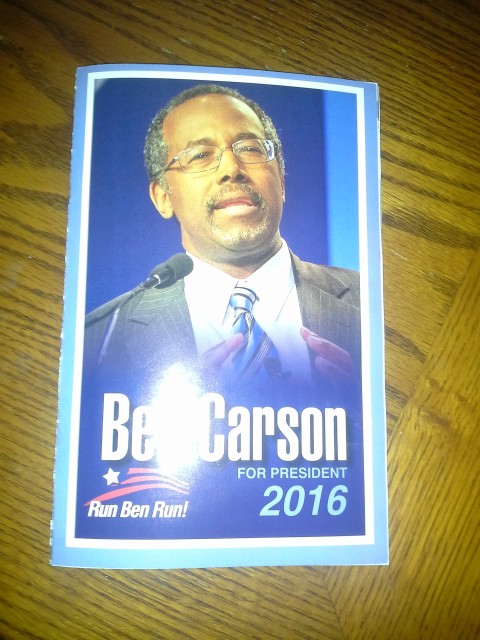Recently I’ve posted about three likely entrants into the 2016 Presidential race – Jeb Bush and Dr. Ben Carson on the Republican side and Jim Webb representing the Democrats. Naturally with an open seat the interest in the job increases, since there’s no incumbent with his built-in advantages to contend with. This opens the field to a lot of potential contenders who passed on the 2012 race for various reasons. Recall that many of those who ran in 2012 on the GOP side are still active in the political arena – Newt Gingrich with his production group, Rick Santorum with Patriot Voices, Mitt Romney with endorsements and help with financial support, and Rick Perry with his RickPAC, among others.
Obviously Democrats were silent in 2012, but it’s been known that grassroots movements have sprung up for Hillary Clinton and Elizabeth Warren (who’s trying to tell her supporters “no”) while Martin O’Malley began his own PAC for 2014. Joe Biden claims he “honest to God hasn’t made up my mind” about running.
On the GOP side, these aforementioned contenders have one thing in common: except for Perry, who did not seek another term and leaves next month, they are not currently serving in office. (On the other hand, among the Democrats only Webb and Clinton are out of office, although O’Malley joins that group January 21.) Yet the GOP has an extremely deep bench of current governors, many of which are in their second term and have national name recognition: in alphabetical order, the group includes Chris Christie of New Jersey, Bobby Jindal of Louisiana, John Kasich in Ohio, Mike Pence of Indiana, and Scott Walker in Wisconsin.
In recent years, our presidents have tended to be former governors: George W. Bush, Bill Clinton, Ronald Reagan, and Jimmy Carter all came from that background. Obviously their tenures in the Oval Office were a mixed bag of success, but Americans tend to be more confident that those who ran a state can run a federal government. (The only recent exceptions to this were 2012 with Mitt Romney and 1988, where Vice-President Bush defeated Michael Dukakis. Maybe being governor of Massachusetts works as a disqualifier.)
With the large potential field of governors, it may be just as important to know who’s out. When you have a state to run for another four years, the excuses for trips to Iowa and New Hampshire are fewer. It’s not to say that governors who want the brass ring won’t try and make that effort, but as we’ve seen with Martin O’Malley and his frequent journeys to New Hampshire and Iowa in his second term, there is the potential for losing focus on your real job. It was enough to cost his anointed successor his election, for the dubious gain of polling at 1 percent or less in most 2016 Presidential polls.
There are perhaps 15 to 20 figures in national politics who could potentially run for President on the Republican side – far more than the Democrats boast. Of course, only one can win a party’s nomination, but beyond that there are only three or four who can be in the top tier and raise the money necessary to wage a national campaign. (It’s something that Martin O’Malley is finding out firsthand on the Democrat side, since he’s not one of those.) It’s been claimed on a grassroots level that the last two Republican campaigns were decided when the “establishment” settled on one candidate before the activists did – that group split their allegiances and votes several ways until it was too late. By the time Rick Santorum outlasted Gingrich, Perry, et. al. he was no more than the highest loser because at that point the nomination was just about sealed for Mitt Romney. Romney may have been the best candidate for 2012, but he wasn’t good enough to get the nearly 3.6 million who passed on voting for Barack Obama a second time to come on board.
People like to keep their options open, but since the announcements of who’s in seem to be receding farther and farther from the actual election, it may help those of us on the Right who would like to select a candidate to know who won’t be running. Obviously there will be a few ardent supporters who will pine for that candidate to reconsider – as far-left populist Democrats are finding with Elizabeth Warren – but we could save a lot of wasted money and effort by finding out who won’t make a half-hearted attempt at an early date.




